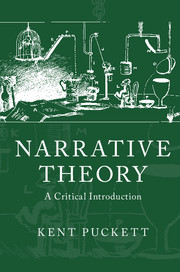Book contents
- Frontmatter
- Contents
- Acknowledgments
- Chapter 1 Introduction: Story/Discourse
- Chapter 2 Action, Event, Conflict: The Uses of Narrative in Aristotle and Hegel
- Chapter 3 Lost Illusions: Narrative in Marx, Nietzsche, and Freud
- Chapter 4 Epic, Novel, Narrative Theory: Henry James, Georg Lukács, Mikhail Bakhtin, and Erich Auerbach
- Chapter 5 Form, Structure, Narrative: Propp, Shklovsky, Saussure, Lévi-Strauss
- Chapter 6 Narratology and Narrative Theory: Kristeva, Barthes, and Genette
- Bibliography
- Notes
- Suggested Further Reading
- Index
- References
Suggested Further Reading
Published online by Cambridge University Press: 01 December 2016
- Frontmatter
- Contents
- Acknowledgments
- Chapter 1 Introduction: Story/Discourse
- Chapter 2 Action, Event, Conflict: The Uses of Narrative in Aristotle and Hegel
- Chapter 3 Lost Illusions: Narrative in Marx, Nietzsche, and Freud
- Chapter 4 Epic, Novel, Narrative Theory: Henry James, Georg Lukács, Mikhail Bakhtin, and Erich Auerbach
- Chapter 5 Form, Structure, Narrative: Propp, Shklovsky, Saussure, Lévi-Strauss
- Chapter 6 Narratology and Narrative Theory: Kristeva, Barthes, and Genette
- Bibliography
- Notes
- Suggested Further Reading
- Index
- References
- Type
- Chapter
- Information
- Narrative TheoryA Critical Introduction, pp. 334 - 338Publisher: Cambridge University PressPrint publication year: 2016



